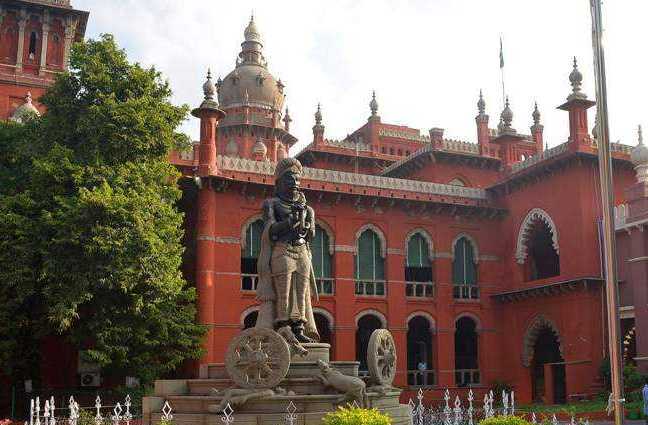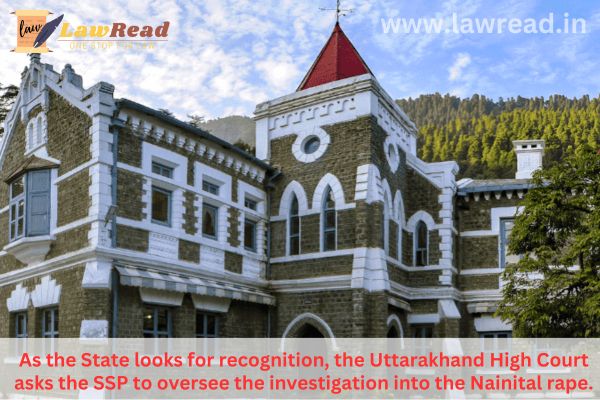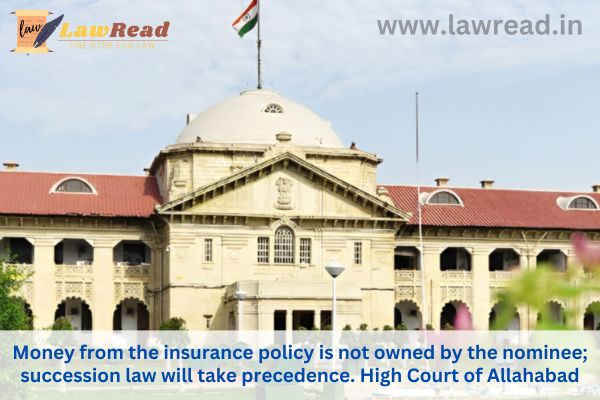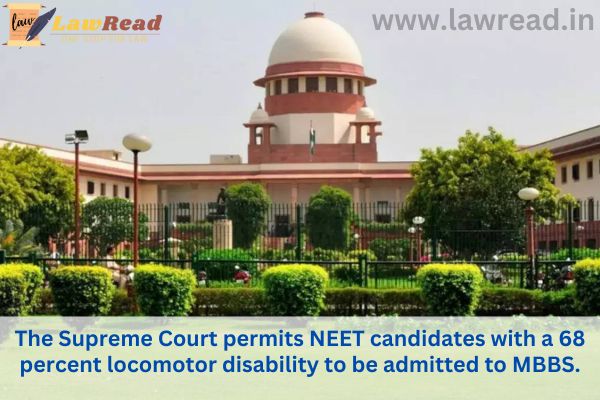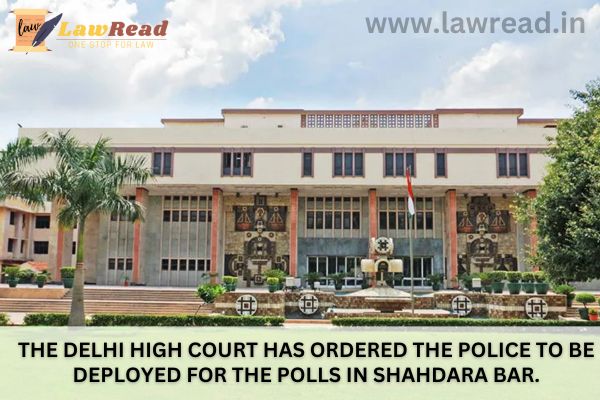News
Money from the insurance policy is not owned by the nominee; succession law will take precedence. High Court of Allahabad
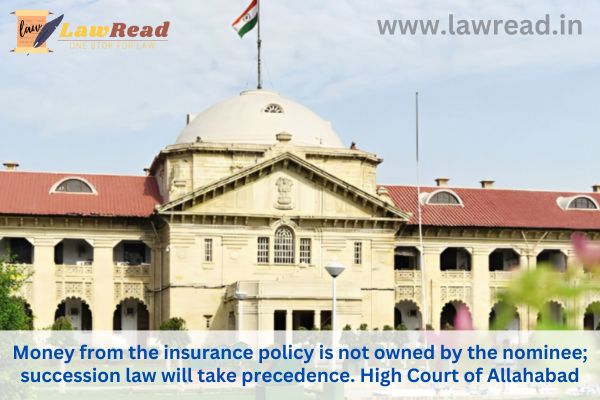
The Court further stated that it would be appropriate to bring the case before the Supreme Court due to the conflicting rulings of High Courts on the subject.
A "beneficial nominee" of an insurance policy does not possess ownership of the policy's proceeds, according to a recent ruling by the Allahabad High Court [Smt Kusum v. Anand Kumar And 3 Others].
According to Justice Pankaj Bhatia, the 2015 amendment to Section 39(7) of the Insurance Act never meant the absurdity that would result from designating the beneficiary as a "beneficial nominee" to the exclusion of the legal heirs.
According to Section 39(7), a nominee will have a beneficial claim to the sum that the insurer is required to pay. Before the amendment, a policy's nominee had the right to keep the money for the benefit of the successor.
In Ram Chander Talwar & Anr. v. Devender Kumar Talwar & Ors, the Supreme Court held that a nominee is not the owner of the funds in a bank account, and the Court determined that Section 39(7) was pari materia with Section 45-ZA of the Banking Regulation Act.
As a result, it held that these pari materia clauses could not be read in conflict with one another.
The Court concluded that, "If the two provisions—the Insurance Act and the Hindu Succession Act—are interpreted harmoniously, the rights granted by the Hindu Succession Act will supersede the rights asserted by the nominee under Section 39(7) of the Insurance Act, as the succession act is specific to succession and the Insurance Act is general."
It disagreed with the rulings of the High Courts in Delhi, Madras, and Andhra Pradesh, which had reached different conclusions. It did point out, nevertheless, that the High Courts of Madhya Pradesh and Karnataka have adopted a different stance.
There is no consensus regarding the impact of changes to the Insurance Act, specifically Section 39(7), on the rights of the successors, as demonstrated by the contradictory rulings above from the Delhi High Court, Andhra Pradesh High Court, and Madras High Court on the one hand, and the Karnataka High Court and Madhya Pradesh High Court on the other. As far as the rights flowing in favor of heirs under the Succession Act are concerned, the Delhi High Court, Andhra Pradesh High Court, and Madras High Court have not actually considered the impact of the amendment to Section 39 of the Insurance Act," the statement stated.
The Court also cited the Supreme Court's ruling in Shakti Yezdani, wherein the nominee's rights to possess firm shares were examined and it was decided that the succession laws would not be superseded by the nomination procedure.
The Court noted that the Insurance Act was never passed by parliament to regulate the rights of succession for individuals who are subject to their own succession laws.
"It is evident that the Hindu Succession Act, a specific statute, would govern the succession issue; therefore, the general law derived from Section 39(7) of the Insurance Act must yield to that extent."
Thus, the Court made the following decision:
According to Ram Chander Talwar (above), Section 39(7) of the Insurance Act, which is pari materia to Section 45-ZA(2) and was incorporated to accomplish a similar goal, holds that the nominee cannot be held accountable for the money in the account. The beneficial nominee cannot be considered the owner of the funds derived from the policy's proceeds, according to the interpretation of Section 39(7).
2. Given the same clause interpreted in the Shakti Yezdani (above) case, it must be decided that the candidate would not violate the legal heirs' rights under the relevant succession laws.
The ruling concerned a Kusum who was embroiled in a conflict with her son-in-law and daughter-in-law regarding who owned her daughter Ranjeeta's insurance policy. When Ranjeeta was single, Kusum had obtained fifteen life insurance policies in her name.
Ranjeeta had a daughter after getting married later. But when her daughter was eleven months old in 2011, Ranjeeta passed away.
Kusum claimed ownership of the funds because she was a nominee of the insurance policies. Her son-in-law and granddaughter contested this in the civil court and won a favorable ruling.
In 2022, Kusum was asked by District Judge Unnao to deposit the money for these insurance policies in the form of Fixed Deposit Receipts (FDRs) in her granddaughter's name until she becomes eighteen.
Kusum then petitioned the High Court to argue that, as a beneficial nominee, she was entitled to the sums under the insurance. She did, however, agree that her granddaughter would be entitled to her fortune in accordance with succession laws, in addition to the sums specified in the policies.
The High Court rejected the petition after taking into account its conclusions that succession law supersedes the Insurance Act.
The Court further stated that it would be appropriate to bring the case before the Supreme Court due to the conflicting rulings of High Courts on the subject.
"I believe it is appropriate to grant the Hon'ble Supreme Court a certificate of appeal under Section 134-A of the Constitution of India, given the issue's seminal significance and its impact on the public at large, as well as the divergent opinions of various High Courts," the Single Judge ruled.
The petitioner was represented by attorneys Vindeshwri Pandey and Deepak Kumar.
The respondents were represented by attorneys Vivek Shukla, Mahendra Pratap Singh, and Vivek Kumar Pandey.

